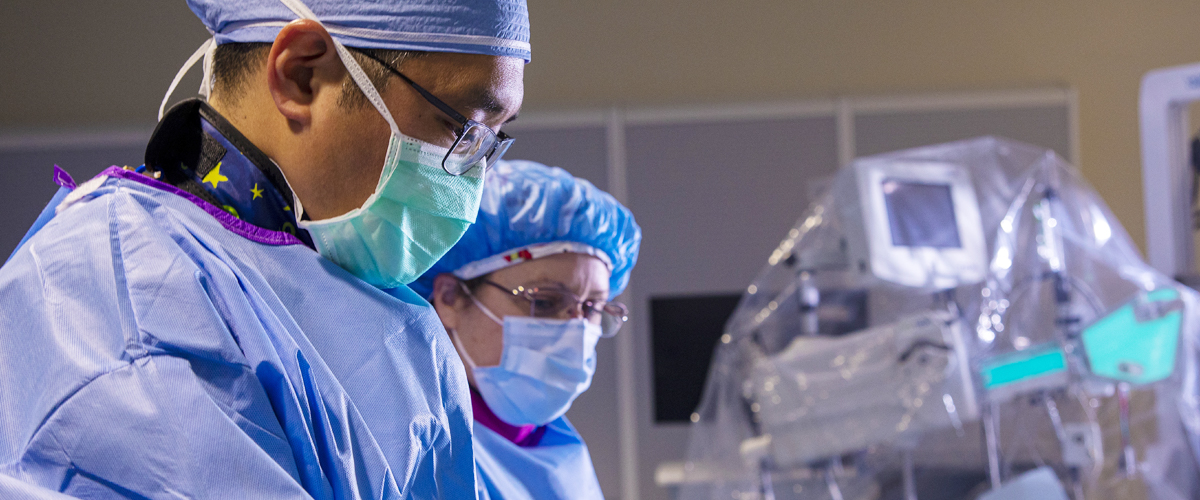Electrophysiology
UM Health-West offers a subspecialty of cardiology called electrophysiology (EP) that focuses on the heart rhythm. Based on your symptoms and the results of tests such as an electrocardiogram (ECG) and/or ambulatory ECG monitor, an EP study may be warranted, which is a test of your heart’s electrical system and is used to diagnose abnormal heart rhythms, also known as arrhythmias.
Types of Arrhythmias
A diagnosis of arrhythmia means there has been a change in the normal sequence of impulses in your electrical system. Four general categories are:
- Premature (extra) beats – early and/or extra beats that come from the upper chambers
- Supraventricular – fast heart rates, or tachycardias that start in your heart’s upper chambers
- Ventricular – abnormalities that start in the heart’s lower chambers
- Bradyarrhythmias – slower-than-normal heart rate
The most common arrhythmia is atrial fibrillation, also known as A-fib, which affects more than 4 million Americans. It is an irregular rhythm that can cause symptoms such as skipped beats or palpitations, chest pain, shortness of breath and fatigue.
Treatments for Heart Arrhythmias
Many people can be treated for arrhythmias with medications alone. Others may need a catheter ablation, performed at the time of an EP study by inserting a catheter to deliver radiofrequency energy. Others may require an implantable device, such as a pacemaker for bradycardia, or an implantable cardiac defibrillator (ICD). Our treatment team will work to identify the best course of action to manage your arrhythmia.
UM Health-West Heart & Vascular performs electrophysiology procedures in collaboration with University of Michigan Health to improve heart care for patients in West Michigan.
